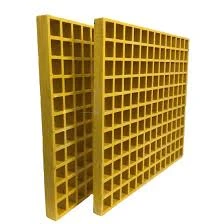
-
 Afrikaans
Afrikaans -
 Albanian
Albanian -
 Amharic
Amharic -
 Arabic
Arabic -
 Armenian
Armenian -
 Azerbaijani
Azerbaijani -
 Basque
Basque -
 Belarusian
Belarusian -
 Bengali
Bengali -
 Bosnian
Bosnian -
 Bulgarian
Bulgarian -
 Catalan
Catalan -
 Cebuano
Cebuano -
 China
China -
 China (Taiwan)
China (Taiwan) -
 Corsican
Corsican -
 Croatian
Croatian -
 Czech
Czech -
 Danish
Danish -
 Dutch
Dutch -
 English
English -
 Esperanto
Esperanto -
 Estonian
Estonian -
 Finnish
Finnish -
 French
French -
 Frisian
Frisian -
 Galician
Galician -
 Georgian
Georgian -
 German
German -
 Greek
Greek -
 Gujarati
Gujarati -
 Haitian Creole
Haitian Creole -
 hausa
hausa -
 hawaiian
hawaiian -
 Hebrew
Hebrew -
 Hindi
Hindi -
 Miao
Miao -
 Hungarian
Hungarian -
 Icelandic
Icelandic -
 igbo
igbo -
 Indonesian
Indonesian -
 irish
irish -
 Italian
Italian -
 Japanese
Japanese -
 Javanese
Javanese -
 Kannada
Kannada -
 kazakh
kazakh -
 Khmer
Khmer -
 Rwandese
Rwandese -
 Korean
Korean -
 Kurdish
Kurdish -
 Kyrgyz
Kyrgyz -
 Lao
Lao -
 Latin
Latin -
 Latvian
Latvian -
 Lithuanian
Lithuanian -
 Luxembourgish
Luxembourgish -
 Macedonian
Macedonian -
 Malgashi
Malgashi -
 Malay
Malay -
 Malayalam
Malayalam -
 Maltese
Maltese -
 Maori
Maori -
 Marathi
Marathi -
 Mongolian
Mongolian -
 Myanmar
Myanmar -
 Nepali
Nepali -
 Norwegian
Norwegian -
 Norwegian
Norwegian -
 Occitan
Occitan -
 Pashto
Pashto -
 Persian
Persian -
 Polish
Polish -
 Portuguese
Portuguese -
 Punjabi
Punjabi -
 Romanian
Romanian -
 Russian
Russian -
 Samoan
Samoan -
 Scottish Gaelic
Scottish Gaelic -
 Serbian
Serbian -
 Sesotho
Sesotho -
 Shona
Shona -
 Sindhi
Sindhi -
 Sinhala
Sinhala -
 Slovak
Slovak -
 Slovenian
Slovenian -
 Somali
Somali -
 Spanish
Spanish -
 Sundanese
Sundanese -
 Swahili
Swahili -
 Swedish
Swedish -
 Tagalog
Tagalog -
 Tajik
Tajik -
 Tamil
Tamil -
 Tatar
Tatar -
 Telugu
Telugu -
 Thai
Thai -
 Turkish
Turkish -
 Turkmen
Turkmen -
 Ukrainian
Ukrainian -
 Urdu
Urdu -
 Uighur
Uighur -
 Uzbek
Uzbek -
 Vietnamese
Vietnamese -
 Welsh
Welsh -
 Bantu
Bantu -
 Yiddish
Yiddish -
 Yoruba
Yoruba -
 Zulu
Zulu
Durable Fiberglass Shell for Enhanced Protection and Versatile Applications
The Versatility of Fiberglass Shells A Comprehensive Overview
Fiberglass shells have emerged as a significant material choice across various industries due to their unique properties and multifaceted applications. Composed primarily of glass fibers embedded in a resin matrix, these materials have proven to be lightweight, durable, and adaptable. This article aims to explore the numerous advantages of fiberglass shells, their applications, and the future of this innovative material.
One of the most compelling attributes of fiberglass shells is their strength-to-weight ratio. Compared to traditional materials such as steel or aluminum, fiberglass offers comparable structural integrity while being significantly lighter. This feature is particularly valuable in industries like aerospace and automotive, where weight reduction enhances fuel efficiency and performance. For instance, many modern aircraft utilize fiberglass components in their design to reduce overall weight and improve aerodynamics.
Another critical advantage of fiberglass shells is their resistance to corrosion and environmental degradation. Unlike metals, fiberglass does not rust, making it an ideal choice for marine applications. Boat manufacturers often prefer fiberglass for hulls because they can withstand harsh marine environments without deteriorating. This inherent resistance extends to various other applications, including chemical storage tanks and pipes, which often encounter corrosive substances.
In addition to strength and resistance, fiberglass shells also offer excellent thermal insulation properties
. This thermal stability makes them a popular choice for constructing building materials, such as panels and roofing systems. Energy efficiency is a growing concern in modern architecture, and using fiberglass can contribute significantly to minimizing energy consumption and maintaining comfortable indoor climates.The manufacturing process of fiberglass shells is relatively flexible, allowing for intricate shapes and designs. This adaptability is a significant advantage in industries such as construction and automotive, where custom shapes can enhance functionality and aesthetics. For example, in the automotive sector, fiberglass is commonly used to create body panels and other components that require specific shapes to improve style and performance.
fiberglass shell

Fiberglass shells can also be easily molded and formed to meet specific design criteria. Techniques such as hand layup, spray-up, and resin transfer molding enable manufacturers to create complex geometries that traditional materials may struggle to achieve. This level of customization is particularly beneficial in the aerospace industry, where precision and performance are paramount.
Another application of fiberglass shells is seen in the area of wind energy. Wind turbine blades are frequently made from fiberglass materials due to their strength, lightweight characteristics, and ability to withstand varying weather conditions. The continuous advancements in fiberglass technology have led to the production of blades that are not only more efficient but also longer-lasting, thereby contributing positively to the renewable energy sector.
Despite their many advantages, fiberglass shells have some drawbacks, including the environmental impact associated with their production and disposal. As an increasingly durable material, fiberglass does not decompose easily, raising concerns about longevity and end-of-life management. However, researchers are working on developing sustainable alternatives and recycling methods to address these issues.
Looking forward, the future of fiberglass shells appears promising. Ongoing advancements in material science are making fiberglass even more versatile and sustainable. Innovations in bio-resin technology, which derives from renewable resources, are making it feasible to create eco-friendly fiberglass products. Additionally, the integration of smart technologies into fiberglass applications is driving new possibilities, particularly in areas like automotive and construction.
In conclusion, fiberglass shells represent a remarkable blend of strength, lightweight characteristics, and versatility across various applications. As industries continue to innovate and seek sustainable solutions, the role of fiberglass is likely to expand further. With its many benefits and the advancements in sustainable practices, fiberglass shells will undoubtedly play a crucial role in shaping the future of materials science and industry. Whether it’s in transportation, construction, or energy, the applications of fiberglass are as vast as they are impactful.









